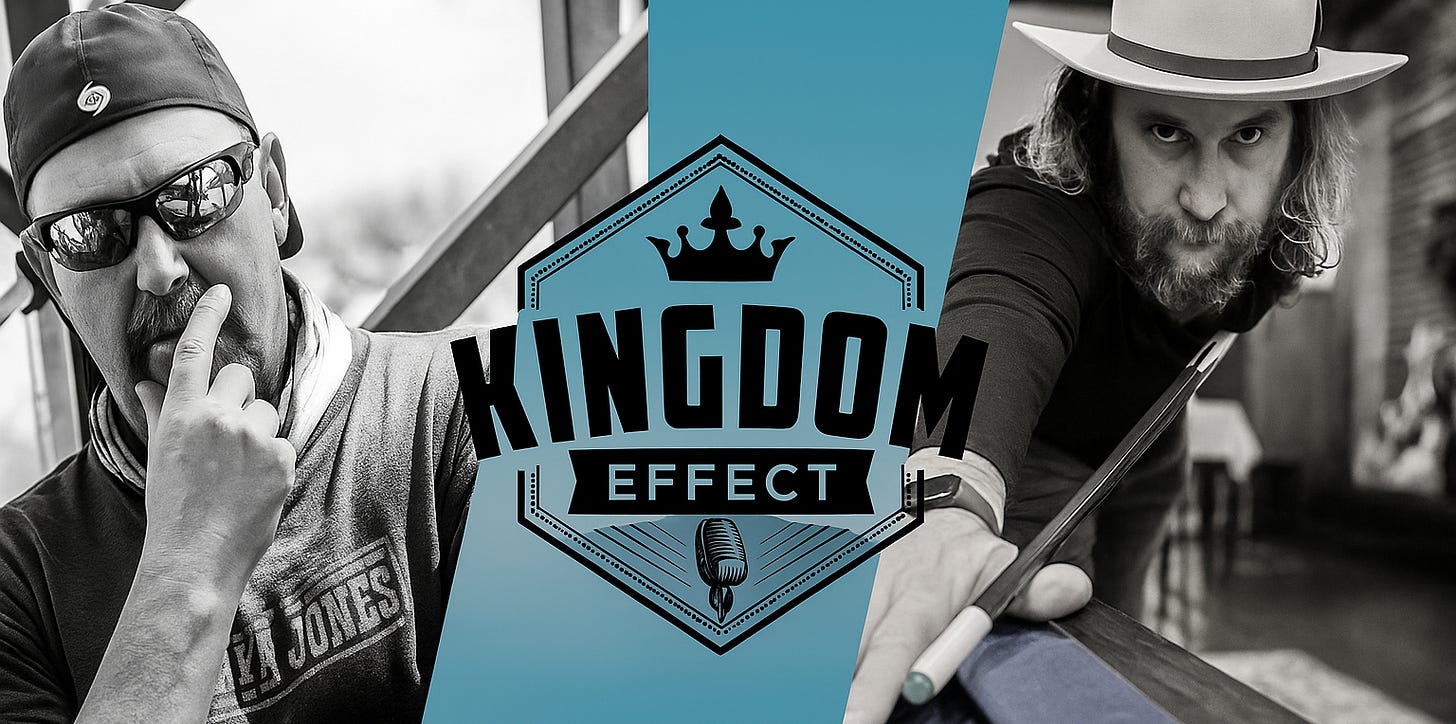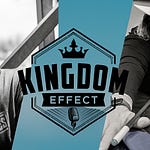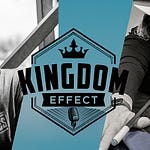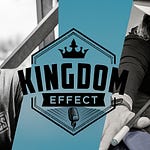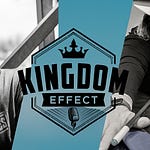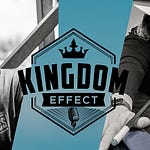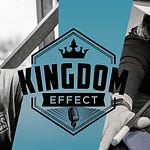FIND THE GUYS!
📖 Buy Kevin’s Book “What If… Why Not? - Through the Doors of Adventure” Here
✔︎ Find Kevin on Substack HERE
✔︎ Find Kevin on Facebook HERE
✔︎ Find Buckley on Facebook HERE
👉 Dream Center of Jackson — dreamcenterjackson.com
In this powerful episode of the Kingdom Effect Podcast, Scott Thorson shares a gut-honest testimony of abuse, murder-suicide, addiction, homelessness, and the long road to healing through Jesus Christ. Raised under an abusive man he thought was his father, Scott discovered his biological dad only days before his mother and sister were murdered by the man who’d raised him. The shock and grief launched him into years of addiction and rage—even as he rose to become a California state kickboxing champion. When the cheers faded, he spiraled into homelessness, living behind restaurants and eating discarded food.
God intervened. Through jail, recovery rooms, and a local church in Tennessee, Scott encountered the forgiveness of Jesus and the dignity he thought he’d lost forever. Today, he serves as a domestic violence victims advocate and champions the Dream Center of Jackson, a Christ-centered transitional housing ministry for women and children. We talk about faith-based recovery, dignity for the homeless, the difference between a handout and a hand up, and how Romans 8:28 looks in real life. If you’re wrestling with addiction, trauma, compassion fatigue, or “what can I actually do?”—this one will light a fire.
Content Advisory
This episode includes references to: domestic and sexual violence, murder-suicide, addiction, and homelessness.
Key Themes & Takeaways
Trauma shapes identity—Jesus reshapes it. Scott’s story shows how early abuse distorts love, and how Christ heals it from the inside out.
Addiction wears many masks. Substances, success, applause, even “helping” can become replacements for intimacy with God.
Dignity first. The homeless often say what they miss most isn’t beds or showers—it’s being seen as fully human. Eye contact and names matter.
Hand up vs. handout. Effective ministries empower people with structure, community, and accountability rooted in the gospel.
Faith-based recovery lasts. Temporary relief is real; transformation is better. Jesus addresses the heart, not just the habit.
Romans 8:28 isn’t a slogan. God wove redemptive purpose even through irreversible tragedy—right down to organ donation saving lives and multiplying witness.
Notable Quotes
“I thought the monster was my dad—until I met the real one who said, ‘I love you, son.’”
“That first needle felt like euphoria. It was a lie. The real cleansing came when Jesus took my guilt.”
“When the crowds stop cheering, you still have to lay your head on the pillow with yourself.”
“We can lead people to water; we can’t make them drink. But we can make the water clean, close, and compelling.”
“You can show Christ without saying His name—and when they say ‘Jesus,’ the whole toolbelt opens.”
Scripture Touchpoints
Romans 8:28 — God works all things for good for those who love Him.
2 Corinthians 1:3–5 — Comforted to become comforters.
Acts 17:26–27 — God places us where people might reach for Him.
John 15 — Transformation by abiding, not striving.
Guest Bio
Scott Thorson is a social worker and domestic violence victims advocate in West Tennessee. A former California state kickboxing champion, Scott overcame addiction and homelessness and now helps survivors rebuild their lives. He partners closely with the Dream Center of Jackson, a Christ-centered transitional housing ministry for women and children.
About the Dream Center of Jackson
The Dream Center of Jackson provides transitional housing and holistic, Christ-centered support for women and children navigating domestic violence, addiction, homelessness, and mental health challenges. The Center is expanding capacity to serve more families and relies on prayer, financial gifts, and donated essentials (diapers, hygiene items, clothing, food, children’s items).
Learn more / support: dreamcenterjackson.com
Practical Ways to Help the Homeless
Lead with dignity: eye contact, names, and normal conversation.
Offer essentials: water, socks, hygiene kits, and gift cards for food.
Resource, don’t rescue: carry a simple card with local shelters, clinics, and hotlines.
Partner with proven ministries: volunteer time/skills; don’t reinvent the wheel.
Pray with permission: ask, “Could I pray a short blessing for you?”
Follow up: consistency builds trust; one touch rarely changes a life.
Discussion Questions
Where have you seen “replacement addictions” in your own life—good things trying to do God’s job?
What does dignifying love look like in your city?
How can a church balance compassion and empowerment (hand up vs. handout)?
Which part of Scott’s story reframed Romans 8:28 for you?
Episode Outline
Opening & intro to Scott — Why this story matters now (COVID fallout, rising DV & homelessness).
Childhood & catastrophic loss — Abuse, truth about parentage, murder-suicide.
Addiction & ring-side validation — Kickboxing success as camouflage for pain.
Rock bottom — Jail, homelessness, eating from dumpsters, divine interruptions.
Encounter with Jesus — Salvation, lifting of guilt, and genuine transformation.
Calling & career — From roofer with a broken back to social worker with a mission.
Dream Center deep-dive — Christ-centered model, expansion, waiting list tension, how to help.
How to serve with dignity — Practical steps for everyday Christians.
Final encouragement & prayer focus — Hope for families, survivors, and frontline workers.
Calls to Action
Pray for women and children on waiting lists and for the Dream Center’s new facility.
Give financially or donate essentials (diapers, hygiene, kids’ items, nonperishables).
Volunteer your skills (mentoring, résumé help, child care support, facilities trades).
Share this episode with someone who needs hope or serves on the front lines.




